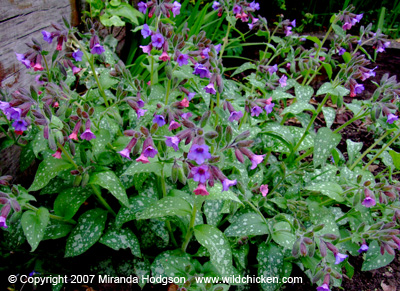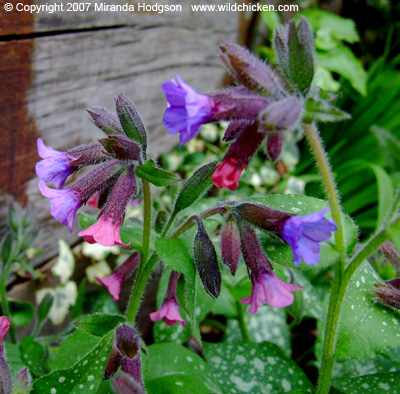


Pulmonaria officinalis (also called lungwort)
Pulmonaria
officinalis
Hardy, semi-evergreen, herbaceous perennial. Grown for early flowers in shades from dark blue to pink and its silver mottled leaves. Pulmonaria provides welcome colour in early spring and is a good ground cover plant for shady areas.
Very attractive to pollinating insects.
Flowers in early spring.
Habit - clump-forming, fairly upright. H: up to 30cm. S: 90cm
Stems - green, hairy, straight.
Leaves - simple, ovate, hairy, dark green with silvery-white mottling.
Flowers - trumpet shaped, arranged in loose terminal clusters, colours range from pink and blue, though white flowers are also seen. Up to 5-10mm across with five petals.
Sun or partial shade.
Moisture retentive but not wet, humus rich.
Fully hardy.
Remove older ragged-looking leaves as they age and divide clumps every three to five years. Plants cut back after flowering will produce a new flush of silver spotted leaves in autumn.
In dry weather, powdery mildew can be a problem. This can be helped by mulching and watering well in dry conditions. Young leaves are often attacked by slugs and snails, though older leaves tend not to be bothered. Sparrows are also known to peck off the flowers in spring, as they do with other flowering plants such as yellow crocuses and primroses.
Divide clumps every three to five years after flowering or in autumn, take root cuttings in winter. Sow seed outdoors as soon as it is ripe. Will also self seed but cultivars will probably not come true from seed.
Garden Plant Information list of plant care info by botanical name